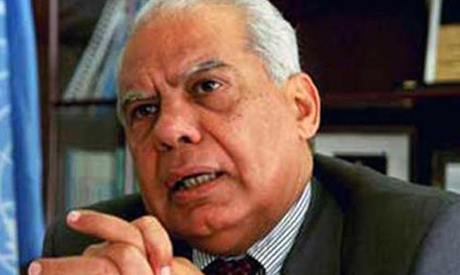Just four short years ago if you asked any by-stander on the streets of Cairo, what do you think about the American President? You will probably get an answer like, "Oh, Love Obama" or "Obama Number One".
These were just some of the great things I heard about Obama from my Egyptian host family and friends in 2009 following Obama's visit to American University in Cairo.
Fast forward to today and you get...

*As a side note: In my opinion, Obama doesn't look bad with a beard*
Utter hate for Obama Administration for supplying money to terrorists, Mubarak, Morsi, and the Muslim Brotherhood. The Obama Administration has outraged Egyptians calling him a terrorist supporters and other fowl language names.
Many of the younger Egyptians have no clue what they want done for their country, but what they do know is that they do not want to the Muslim Brother hood in power. Through out the recent protest the Obama administration has remain silent--with good reason. After supplying approximately $85 billion in aid to the military and the government of Mubarak and Morsi, Obama's administration has some explaining to do for Egyptians and the American people.
Unfortunately, the United States has a larger interest in looking of for its economic trade agreements than the well being of Egyptians in other countries. The distribution of this aid came with several conditions which the American and Egyptian government alike refused to carry out and comply with; unfortunately--as many people already know--the Muslim Brotherhood was not able to rule democratically and the U.S. still aided them in order to protect investments in the Suez Canal.
And yet Obama now admits that he did supply money to the Morsi regime and will continue to supply money to the military as long as they continue "democratically"
Where the U.S. spends its money has been watched for a long time, but allowing this continue must stop. There must be more strict conditions to set for countries that we give money to and using the embassies in those countries as liaisons to manage if the money is being spend wisely. Another solution would be is to keep our noses out of the Middle East for fear of another Iran-like hostage crisis.
With the hate for American aid to the U.S. and the idea that the U.S. helped put Morsi in power, Egyptian have the right to be upset with the U.S., and because of this with tensions high and several university students and American embassy employees it is a matter of safety. If our administration does care about the Egyptian people at least care about the safety of your own people and learn from history.
These were just some of the great things I heard about Obama from my Egyptian host family and friends in 2009 following Obama's visit to American University in Cairo.
Fast forward to today and you get...
*As a side note: In my opinion, Obama doesn't look bad with a beard*
Utter hate for Obama Administration for supplying money to terrorists, Mubarak, Morsi, and the Muslim Brotherhood. The Obama Administration has outraged Egyptians calling him a terrorist supporters and other fowl language names.
Many of the younger Egyptians have no clue what they want done for their country, but what they do know is that they do not want to the Muslim Brother hood in power. Through out the recent protest the Obama administration has remain silent--with good reason. After supplying approximately $85 billion in aid to the military and the government of Mubarak and Morsi, Obama's administration has some explaining to do for Egyptians and the American people.
Unfortunately, the United States has a larger interest in looking of for its economic trade agreements than the well being of Egyptians in other countries. The distribution of this aid came with several conditions which the American and Egyptian government alike refused to carry out and comply with; unfortunately--as many people already know--the Muslim Brotherhood was not able to rule democratically and the U.S. still aided them in order to protect investments in the Suez Canal.
And yet Obama now admits that he did supply money to the Morsi regime and will continue to supply money to the military as long as they continue "democratically"
Where the U.S. spends its money has been watched for a long time, but allowing this continue must stop. There must be more strict conditions to set for countries that we give money to and using the embassies in those countries as liaisons to manage if the money is being spend wisely. Another solution would be is to keep our noses out of the Middle East for fear of another Iran-like hostage crisis.
With the hate for American aid to the U.S. and the idea that the U.S. helped put Morsi in power, Egyptian have the right to be upset with the U.S., and because of this with tensions high and several university students and American embassy employees it is a matter of safety. If our administration does care about the Egyptian people at least care about the safety of your own people and learn from history.


